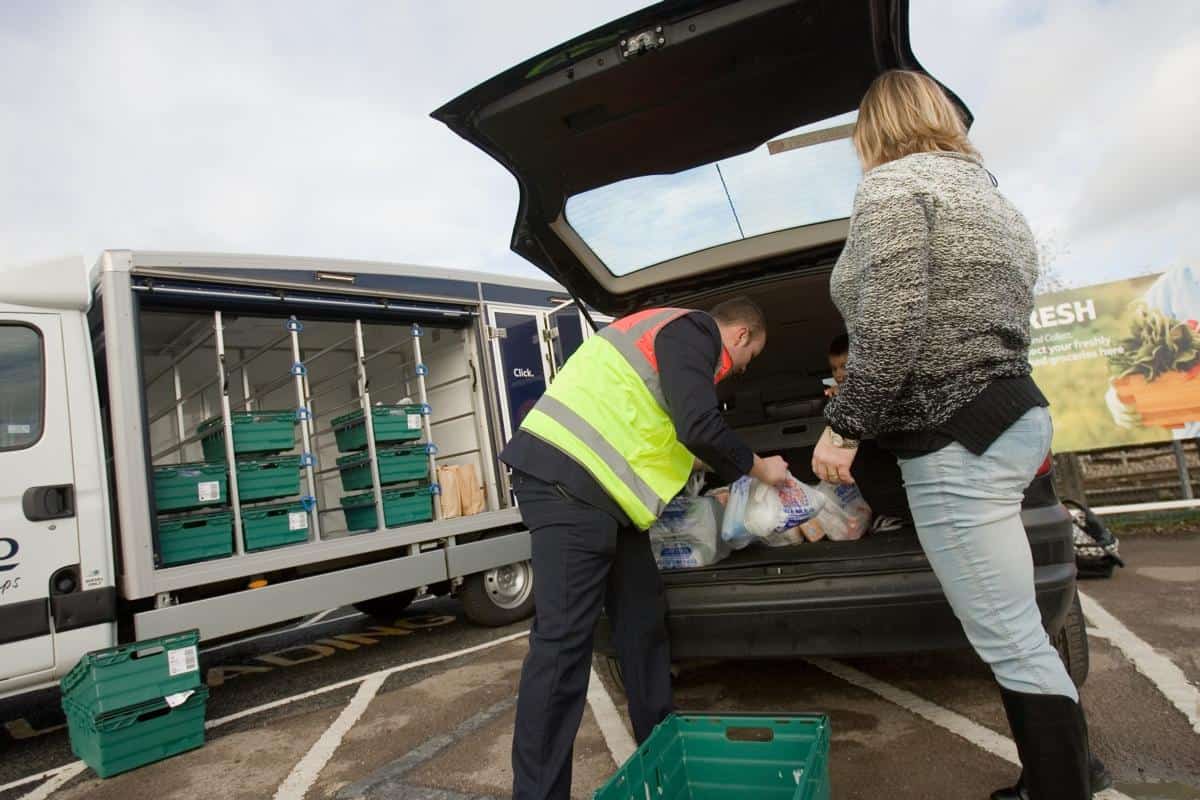Today’s news that Tesco and Booker, the UK’s leading retailer and the UK’s leading wholesaler, are to merge in a deal that’s been put at £3.7bn has caught the market by surprise. But looking at the deal more closely, it’s an interesting one for those tackling the challenge of digital transformation in their own businesses, and moving towards offering their customers the consistent and relevant, seamless experience that is multichannel retail. Broadly, Tesco appears to suggest that its expertise in multichannel retail selling and delivery will help to bring better customer service to the wholesale market. Certainly, a glance at the Booker website suggests that the digital expertise that Tesco says will help to revolutionise the wholesale market is currently mainly on the retailer’s side of this equation. Tesco puts in a very strong performance in the IRUK Top500 2017 index, currently on its way to readers, and stands out for a highly effective service that spans delivery and mobile as well as the store and online trading. And although Booker owns the Premier, Budgens and Londis brands, it does not currently support online retailing directly to the consumer.
Increased efficiency
Tesco says the deal will bring together both companies’ expertise in their different markets, including their digital capabilities. By combining tools such as digital with the larger group’s knowledge of the supply chain, it says the new company “will be able to provide greater choice, quality, price and service in the food market, whilst improving efficiency and reducing food waste”. That reduction to food waste will come as the enlarged, multichannel, business works with those producing agricultural crops. At the same time, it suggests, efficiencies of scale are set to mean that the larger group will have higher revenues and lower costs.
Help independent retailers
By buying a wholesale business, Tesco Booker will effectively be delivering to companies that Tesco alone currently competes with. Tesco says the new business will help independent retailers, as well as caterers and other small businesses, by bringing its digital and delivery service experience into play, while improving choice, price and service at the same time.
Booker itself already owns three retail brands, Premier Stores, Budgens and Londis. Through its Premier Stores brand, it supplies This supplies the 2,900 independent retailers who sport the Premier logo – and are mainly small convenience stores. Budgens and Londis operate similarly. However, it’s unclear from the announcement whether Tesco Booker would plan to benefit any other independent retailers as a result of the deal.
Innovative customer services
A larger Tesco Booker group will be well placed to come up with new approaches to service, suggests Tesco, which says the deal will “create attractive innovation opportunities to serve customer and consumers better in a rapidly evolving marketplace”. Tesco chief executive Dave Lewis said that the merger would build on its turnaround of Tesco’s UK retail business. It will, he said, “further enhance Tesco’s growth prospects by creating the UK’s leading food business with combined expertise in retail, wholesale, supply chain and digital. Wherever food is prepared and eaten – ‘in home’ or ‘out of home’ – we will meet this opportunity with the widest choice and best service available.”
Charles Wilson, chief executive of Booker, agrees. He said: “Booker is committed to improving choice, prices and service for the independent retailers, caterers and small businesses that we are proud to serve. We believe that joining forces with Tesco offers the potential to bring major benefits to end consumers, our customers, suppliers, colleagues and shareholders.”
Commenting on the deal, Richard Lim, chief executive, Retail Economics said: “Tesco’s announcement to merge with Booker Group will be a game changer in the food industry.
“As shopper behaviour continues to evolve rapidly, the new group will be well placed to capitalise on home shopping and the increasingly important area of eating out which has been the growth driver of the experience economy.”
Professor Alan Braithwaite, chairman of supply chain and logistics consultancy, LCP Consulting says the deal has industrial logic.
“If the deal goes through, there are major operational opportunities to integrate fulfilment networks using Tesco’s capabilities for ecommerce but adding services and accelerating response times, enabling click and collect and integrating food service deliveries. So, the competitive advantage could be compelling.
“Booker own or control Londis, Premier and Budgens retail chains/facias – so there may well be a Competition Commission complaint based on Tesco’s high convenience store and market share already. This is contrary to the published statement by Tesco. However, the Competition Commission has historically struggled with the market place segmentation in food and grocery – so it is difficult to anticipate any ruling.”
Iona Carter, director at Shoppercentric, said: “What this certainly reflects is Tesco’s recognition that grocery shopping habits are changing: big shopping trips are in decline, as shoppers increasingly either drop them completely or move them online; conversely, smaller basket shopping trips are on the increase – which is where the convenience sector can cash in. Extending its reach into this channel by supplying the independent sector can only be a good thing – they will cease to become competitors in the traditional sense. It is also a lower risk foray into the out of home channel – but it will be interesting to see how the fortunes of this channel will play out in the Brexit climate as consumers and shoppers start to tighten their belts once more.”









